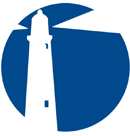
2008 Role of Shipboard Sampling in Observing Systems
Theme Session on the Role of Shipboard Sampling in Observing Systems
University of New Hampshire
May 2, 2008
Sponsored by RARGOM and the Coastal Observing Center at the University of New Hampshire
This one day theme session focuses on observing system needs for shipboard sampling in the Gulf of Maine. While many variables describing the state of the Gulf of Maine are amenable to remote or autonomous sensing, others, such as ocean chemistry, abundance and composition of zooplankton and ichthyoplankton and production rates of ecosystem processes, still require sampling at sea and measurement in shipboard and coastal laboratories. Shipboard sampling activities related to coastal ocean observing may include: collection of data for times series at fixed stations, groundtruthing remote sensing data, collection of data for model parameterization and validation, detection of climate change, and use of ship collected data for testing and calibrating new automated instrumentation.
Theme session goals:
- Assemble stakeholders and researchers who are interested in establishing and using shipboard observing data sets
- Establish an ad hoc regional committee for overseeing incorporation of shipboard sampling into the regional observing system
- Identify needs for shipboard sampling from research and stakeholder perspectives.
- Identify current ongoing shipboard observing activities, including time series and other measurements addressing observing systems needs.
- Identify ship platforms and funding opportunities for supporting shipboard sampling time series.
- Plan a future meeting to formulate a vision, science and implementation plan for shipboard contributions to the regional observing system
- Compare regional with national IOOS needs for shipboard sampling; learn what other regions are doing (e.g. US Regional Associations and Canada AZMP)
The session will consist of several short presentations of regional shipboard sampling activities in the morning, followed by discussion groups on topics related to theme session goals and a wrap up plenary session in the afternoon. We hope to charge the regional committee with preparation of a workshop report that briefly summarizes existing activities, identifies/details stakeholders needs for shipboard data and discusses locations and frequency of sampling activities to address these needs.
A registration fee of $25 will be charged to cover costs of lunch and refreshments.
For more information, please contact Jeffrey Runge (Jeffrey.runge@maine.edu) or Joe Salisbury (joe.salisbury@unh.edu) or Lynn Rutter (lynn.rutter321@gmail.com) for logistical information.
Thank you,
